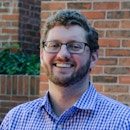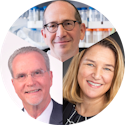By clicking to watch this video, you agree to our privacy policy.
On May 6, 2020, Benjamin Neale discussed progress in mapping genetic risk factors for autism, schizophrenia and bipolar disorder.
His talk was part of the Simons Foundation Autism Research lecture series.
About the Lecture
The past decade has seen rapid progress in mapping genetic risk factors for autism, schizophrenia and bipolar disorder. In this talk, Benjamin Neale reviewed this progress, delving into how study designs and genetic variants are teaching us about different aspects of mental health. With that backdrop, he then introduced the International Common Disease Alliance (ICDA), a nascent effort to bring the community together to tackle the challenge of moving from genetic maps to biological mechanisms and medicine. The ICDA has developed a set of recommendations for realizing the promise of human genetics to transform our understanding of and treatment for common disorders, such as autism.




